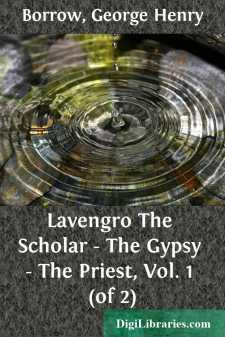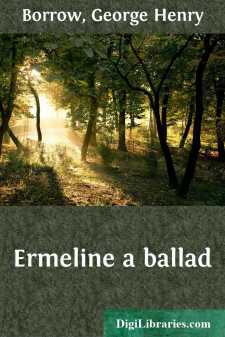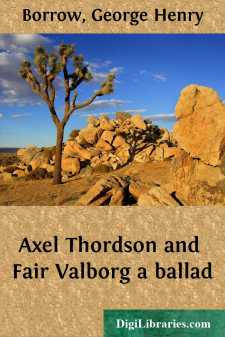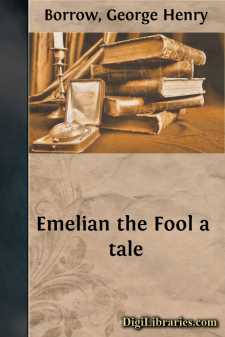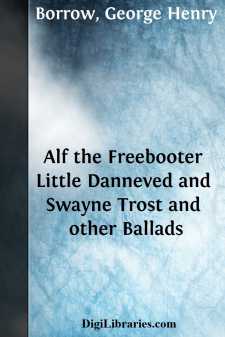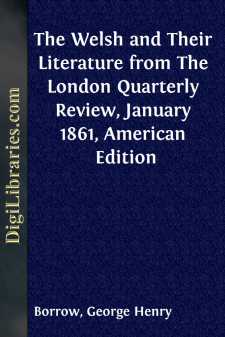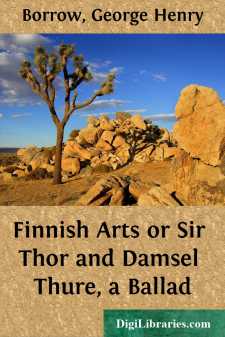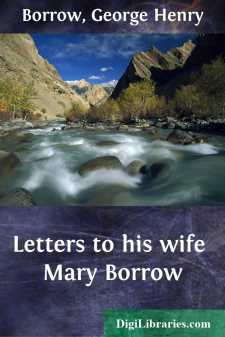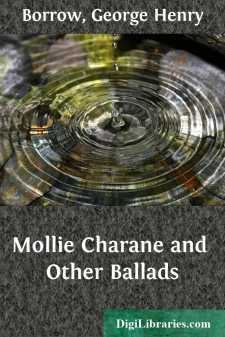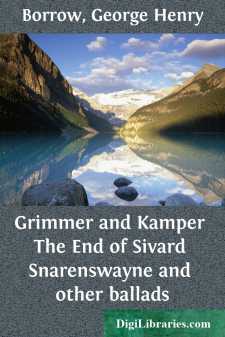Categories
- Antiques & Collectibles 13
- Architecture 36
- Art 48
- Bibles 22
- Biography & Autobiography 813
- Body, Mind & Spirit 138
- Business & Economics 28
- Children's Books 12
- Children's Fiction 9
- Computers 4
- Cooking 94
- Crafts & Hobbies 4
- Drama 346
- Education 46
- Family & Relationships 57
- Fiction 11821
- Games 19
- Gardening 17
- Health & Fitness 34
- History 1377
- House & Home 1
- Humor 147
- Juvenile Fiction 1873
- Juvenile Nonfiction 202
- Language Arts & Disciplines 88
- Law 16
- Literary Collections 686
- Literary Criticism 179
- Mathematics 13
- Medical 41
- Music 40
- Nature 179
- Non-Classifiable 1768
- Performing Arts 7
- Periodicals 1453
- Philosophy 64
- Photography 2
- Poetry 896
- Political Science 203
- Psychology 42
- Reference 154
- Religion 505
- Science 126
- Self-Help 81
- Social Science 81
- Sports & Recreation 34
- Study Aids 3
- Technology & Engineering 59
- Transportation 23
- Travel 463
- True Crime 29
Lavengro The Scholar - The Gypsy - The Priest, Vol. 1 (of 2)
Categories:
Description:
Excerpt
There have been many Romany Ryes, or “Gypsy Gentlemen,” as Gypsies designate those who, though not of their race, yet have loved that race, and have mastered the Romany tongue. The first is one of the oddest—Andrew Boorde (c. 1490-1549). Carthusian, traveller, physician, and, perhaps, the original Merry Andrew, he got into trouble over certain delinquencies, and died a prisoner in the Fleet gaol. In 1542 he was writing his Fyrst Boke of the Introduction of Knowledge, and had come to “the xxxviii. chapiter,” which “treateth of Egypt, and of theyr money and of theyr speche.” He started bravely:—
“Egipt is a countrey ioyned to Jury,
The countrey is plentyfull of wine, corne and hony.
“There be many great wyldernes, in the which be many great wylde beastes. In ye which wildernis liuid many holy fathers, as it apperith in vitas patrum. The people—”
But here, I fancy, he suddenly broke off; what did he know of the Egyptian people? Greece was the nearest he had ever been to Egypt. Going, however, for a stroll through his native county of Sussex, he presently lights on a band of “right Egyptians,” belike in front of an alehouse. Egyptians! the very thing! Like any newspaper correspondent of to-day, he must straightway have whipped out his notebook, and jotted down the rest of his chapter:—
“The people of the country be swarte, and doth go disgisid in theyr apparel, contrary to other nacions. They be lyght fyngerd and vse pyking, they have litle maner and euyl loggyng, and yet they be pleasant daunsers. Ther be few or none of the Egypcions yt doth dwel in Egipt, for Egipt is repleted now with infydel alyons. Ther mony is brasse and golde. Yf there be any man yt wyl learne parte of theyr speche, Englyshe and Egipt speche foloweth.”
And there duly follows a neat little Ollendorfian dialogue about meat and bread, wine and beer, and such-like, in which Dr. Furnivall, Boorde’s editor, left it for Professor Zupitza to recognise excellent Romany. “Sit you downe and dryncke,” “Drinke, drynke for God’s sake,” are two of the phrases. The interview was probably prolonged, perhaps renewed; Andrew Boorde would find good fellowship with Gypsies.
No. 2 is the Scholar-Gypsy, of whom, alas! we know all too little, neither name nor dates, but only just what Joseph Glanvill tells in his Vanity of Dogmatizing (1661):—
“There was very lately a Lad in the University of Oxford, who being of very pregnant and ready parts, and yet wanting the encouragement of preferment, was by his poverty forc’d to leave his studies there, and to cast himself upon the wide world for a livelyhood. Now, his necessities growing dayly on him and wanting the help of friends to relieve him, he was at last forced to joyn himself to a company of Vagabond Gypsies, whom occasionly he met with, and to follow their Trade for a maintenance. Among these extravagant people, by the insinuating subtilty of his carriage, he quickly got so much of their love and esteem, as that they discover’d to him their Mystery: in the practice of which, by the pregnancy of his wit and parts, he soon grew so good and proficient as to be able to out-do his Instructours. After he had been a pretty while well exercis’d in the Trade, there chanc’d to ride by a couple of Scholars who had formerly bin of his acquaintance. The Scholars had quickly spyed out their old friend among the Gypsies, and their amazement to see him among such society had well-nigh discover’d him: but by a sign he prevented their owning him before that Crew: and taking one of them aside privately, desired him with his friend to go to an Inn, not far distant thence, promising there to come to them. They accordingly went thither, and he follows: after their first salutations, his friends enquire how he came to lead so odd a life as that was, and to joyn himself with such a cheating beggerly company. The Scholar-Gypsy having given them an account of the necessity which drove him to that kind of life, told them that the people he went with were not such Impostouirs as they were taken for, but that they had a traditional kind of learning among them, and could do wonders by the power of Imagination, and that himself had learnt much of their Art, and improved it further then themselves could. And to evince the truth of what he told them, he said, he’d remove into another room, leaving them to discourse together, and upon his return tell them the sum of what they had talked of: which accordingly he perform’d, giving them a full account of what had passed between them in his absence. The Scholars being amaz’d at so unexpected a discovery, earnestly desir’d him to unriddle the mystery. In which he gave them satisfaction, by telling them, that what he did was by the power of Imagination, his Phancy binding theirs, and that himself had dictated to them the discourse they held together, while he was from them: That there were warrantable wayes of heightening the Imagination to that pitch as to bind anothers, and that when he had compass’d the whole secret, some parts of which he said he was yet ignorant of, he intended to leave their company, and give the world an account of what he had learned.”
The third of our Romany Ryes is a Scottish peer and a Jacobite, George Seton, fifth Earl of Wintoun (1679-1749). He as a young man quarrelled with his father, and, taking up with a band of Gypsies who frequented the Seton property, set off with them on their wanderings over Scotland, England, and the Continent. He seems to have been away from June 1700 until November 1707: and when, by his father’s death in 1704, he succeeded to the earldom, “no man knew where to find him, till accident led to the discovery.” The Rev....


